Expressionists: Kandinsky, Münter and the Blue Rider review
A large and wonderful selection of the Lenbachhaus collection in Munich are hanging on the walls of Tate Modern for a new and very educational exhibition, Expressionists: Kandinsky, Münter and the Blue Rider. Ordinary and naturalistic scenes are expressed in extraordinary colours and manners by highly acclaimed artists such as Münter, Kandinsky, Franz Marc, Werefkin, and it is such a beautiful sensation to see these paintings up close, to see the absolute explosion of colours.
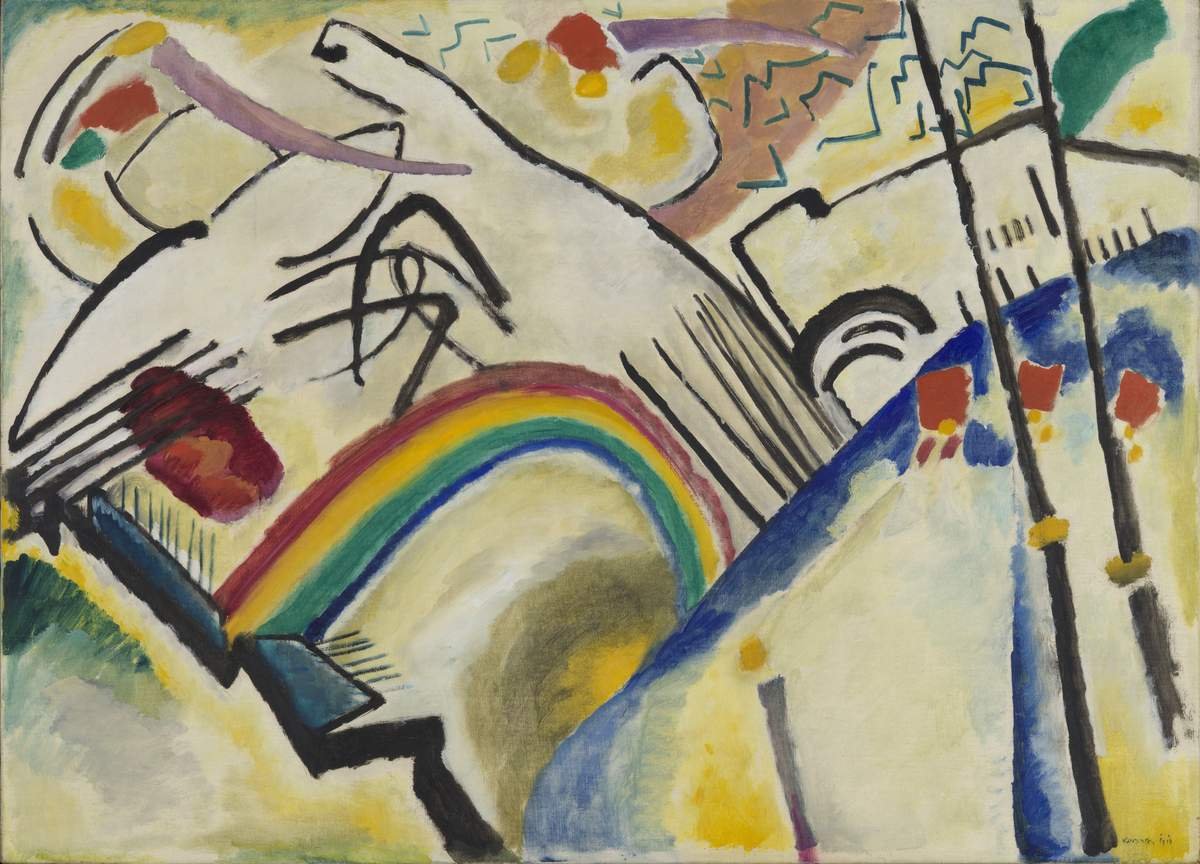
Wassily Kandinsky. Cossacks, 1910-11. Tate, presented by Hazel McKinley, 1938.
This cosmopolitan group of artists came together before WWI to form a “union of various countries to serve one purpose - to transform modern art”. And transforming they did. The colours and the boldness in their work was a new form of vibrant art. Women played quite a central role in the Blue Rider group, standing in front of Gabriele Münter and Marianne Werefkin was exciting beyond words, such dramatic paintings; the vivacity of colours are simply breathtaking.
The Blue Rider was a very international group, formed of Russians, French and Germans, with Kandinsky and Franz Marc as the main two names, for some, but one cannot simply accept that, as Münter, Werefkin, Macke, Sacharoff, a few amongst many, also played a major part in the movement. All were artists who had experienced hardship, migration, displacement. All were artists who wanted to experience new approaches to their artistic expressions.

Gabriele Münter. Portrait of Marianne von Werefkin, 1909. Lenbachhaus, Munich. Donation of Gabriele Münter, 1957.
This fascinating group had its roots in 1909 in the ‘New Artists’ Association of Munich’, a group where women were allowed to be a part of, where musicians were a part of, more interestingly, where important artists such as Paul Klee, Robert Delaunay were associated with until the creation of the Blue Rider in 1911.
“The Blue Rider circle’s aesthetic concerns developed in parallel with their belief in their deep spiritual significance of artistic experimentation.” We can easily see this in the forms and colours in their paintings, an experimentation they all were involved in. To think of what this form of art could have gone on to be had it not been for the World War is just heartbreaking.
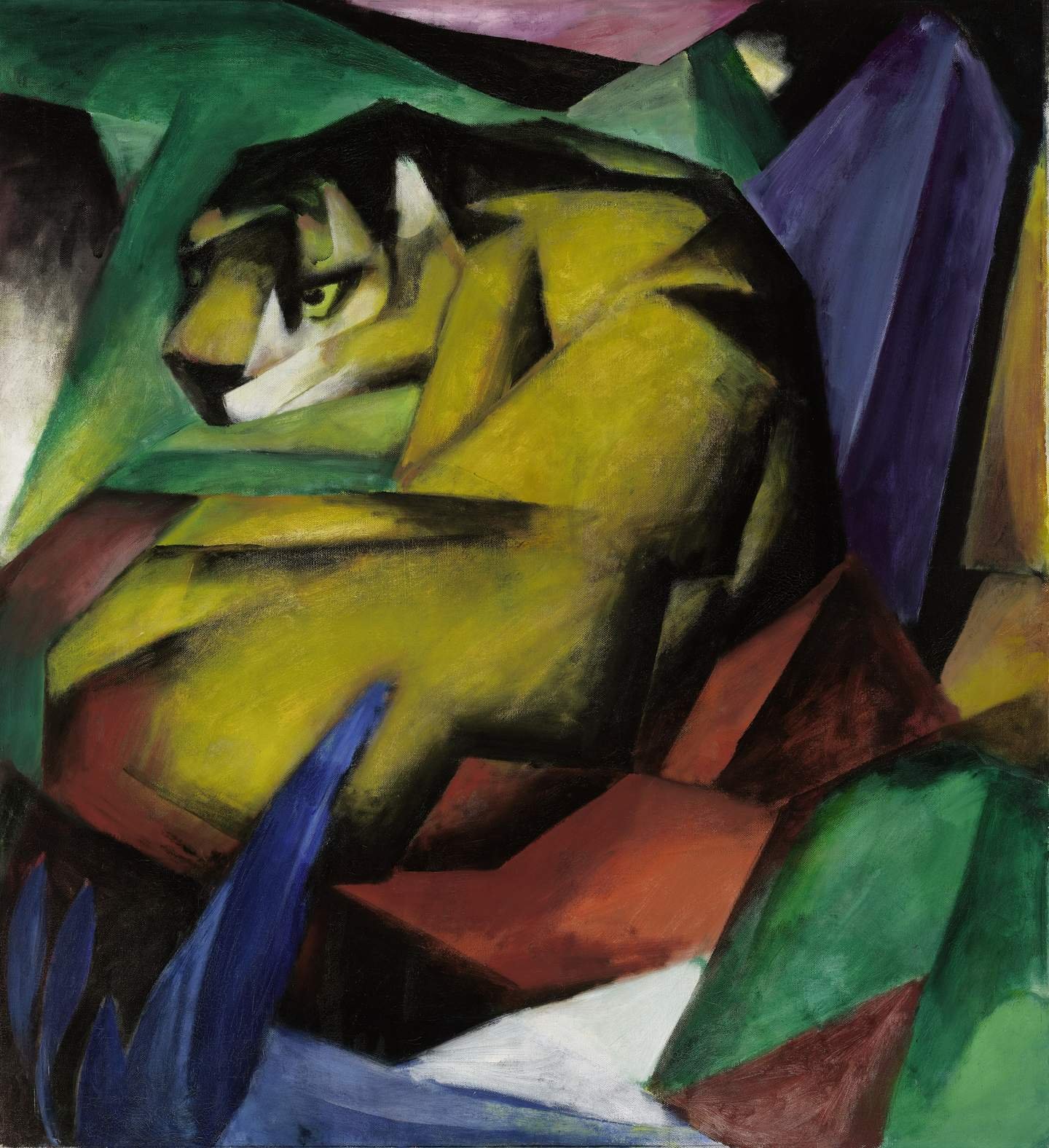
Franz Marc. Tiger, 1912. Lenbachhaus, Munich. Donation of Bernhard and Elly Koehle.
“We were only a group of friends who shared a common passion for painting as a form of self-expression. Each of us was interested in the work of the other...in the health and happiness of the others.” Gabriele Münter, 1958.
Expressionists: Kandinsky, Münter and the Blue Rider is a truly exceptional, colourful, vivacious, moving and informative exhibition at Tate Modern and it is definitely highly recommended.
Date: 25 April - 20 October 2024; Location: Tate Modern, Bankside, London SE1 9TG; Price: £22, concessions available. Book now.
Words by Massoumeh Safinia
Robyn Orlin had her first encounter with the rickshaw drivers of Durban at the young age of five or six, an experience that left such a deep impression on her that she later sought to learn more about their fate. Rickshaws were first introduced to Durban in 1892…
Murder She Didn’t Write is misbehaviour live on stage peppered with self-awareness and unbelievably good writing. This isn't a fad, this isn't sloppy - it’s naughty and scathingly witty…
TOZI, derived from the affectionate Venetian slang for “a close-knit group of friends,” is the brainchild of an Italian trio that met while opening Shoreditch House under the Soho House Group. In 2013, Chef Maurilio Molteni, fresh from his time as Head Chef at Shoreditch House and developing the menu at Cecconi’s, opened the first TOZI restaurant in London…
Multitudes at Southbank Centre will reimagine live music through bold collaborations across dance, theatre, and visual arts…
Multitudes Festival · Ed Atkins, Tate Britain · Brick Lane Jazz Festival · Teatro La Plaza’s Hamlet · Holly Blakey: A Wound with Teeth & Phantom · Roof East · Hampton Court Palace Tulip Festival 2025 · London Marathon 2025 · ROOH – Within Her · Sultan Stevenson Presents El Roi · Carmen at The Royal Opera House · The Big Egg Hunt 2025 · Architecture on Stage: New Architects · The Friends of Holland Park Annual Art Exhibition 2025
Autumn 2025 will bring two exciting exhibitions to the Barbican: ‘Dirty Looks’, a bold fashion exhibition exploring imperfection and decay, and an innovative art installation by Lucy Raven in The Curve…
Robyn Orlin: We wear our wheels with pride · Architecture on Stage: Lütjens Padmanabhan · Jay Bernard: Joint · Black is the Color of My Voice · Joe Webb Trio · Rhodri Davies at Cafe OTO · Sunday Times Young Writer of the Year Award 2025 · Lyon Opera Ballet: Cunningham Forever · AVA London · Sister Midnight · Astonishing Things: The Drawings of Victor Hugo · Eunjo Lee · Arpita Singh: Remembering · Fiona Banner aka The Vanity Press: Disarm · Bunhead Bakery · Time & Talents
Looking for something truly special this Mother’s Day? There are a variety of unique gifts and experiences to take advantage of in London, whether your mother loves exploring world-class art galleries and museum exhibitions, wandering through historic homes filled with fascinating stories and remarkable collections, indulging in a luxurious spa treatment, or enjoying an unforgettable dining experience..
After 18 successful years at Edinburgh Fringe, The Big Bite Size Show arrives in London for the first time at The Pleasance Theatre, no less. A gem of a place for fringe theatre in London…
180 Studios will present the largest showcase of photographer and filmmaker Gabriel Moses’ work to date, featuring over 70 photographs and 10 films in March…
Cartier Exhibition at the V&A · Giuseppe Penone: Thoughts in the Roots · Antony Gormley: WITNESS · Richard Wright at Camden Art Centre · The Carracci Cartoons: Myths in the Making · Eileen Perrier: A Thousand Small Stories · Ed Atkins at Tate Britain · Richard Hunt: Linear Peregrination · Nolan Oswald Dennis at Gasworks · Nora Turato: pool7 · In House: Ree Bradley and Pete Gomes at Studio Voltaire…
The Shirley Sherwood Gallery of Botanical Art at Kew Gardens will showcase new botanical works, cinematic installations, and the connections between artists and trees…
Orchid Festival · Alice Sara Ott: John Field & Beethoven · Our Mighty Groove at Sadler’s Wells East · Seth Troxler at Fabric · North London Laughs – A Charity Comedy Night · London Symphony Orchestra: Half Six Fix – Walton · In Focus: Amir Naderi · Artist Talk: Citra Sasmita - Into Eternal Land · Noah Davis at Barbican · Theaster Gates: 1965: Malcolm in Winter: A Translation Exercise · Ai Weiwei: A New Chapter · Galli: So, So, So · Somaya Critchlow: The Chamber
An important exhibition has opened at the National Gallery co-organised with the Metropolitan Museum of Art. The Mayor of Siena, Nicoletta Fabio was in attendance on opening day to mark the exhibitions significance. Normally a major exhibition would take two to three years to come to fruition, in this instance, it has been in the making for eight year…
Máret Ánne Sara to create 2025 Hyundai Commission as Tate and Hyundai extend partnership to 2036.
Claudia Pagès Rabal: Five Defence Towers · Tirzah Garwood: Beyond Ravilious · Heather Agyepong: Through Motion · Christina Kimeze · Citra Sasmita: Into Eternal Land · Mire Lee: Open Wound · Linder: Danger Came Smiling · Galli: So, So, So · Mickalene Thomas: All About Love …
Marylebone Village to host a week of events championing female founders and entrepreneurs, including a panel discussion and fundraising for the Marylebone Project…
Battersea Power Station will host Good Fit, a month-long event featuring workouts, mindfulness sessions, expert talks, and wellness experiences…
Trisha Brown Dance Company & Noé Soulier – Working Title & In the Fall · (LA)HORDE / Ballet National de Marseille – Age of Content · Lyon Opera Ballet – Merce Cunningham Forever (BIPED and Beach Birds) · Neither Drums Nor Trumpets – Pam Tanowitz · Robyn Orlin – We Wear Our Wheels with Pride
Splash! A Century of Swimming and Style · Astonishing Things: The Drawings of Victor Hugo · Arpita Singh: Remembering · 2025 Deutsche Börse Photography Foundation Prize · The Craft of Carpentry: Drawing Life from Japan’s Forests · Grayson Perry: Delusions of Grandeur · Edvard Munch: Portraits · Ficre Ghebreyesus · Textiles: The Art of Mankind · Eunjo Lee…
Highsnobiety: Not In London · LFW Pop-Up Shop · 1664 Blanc Activation · Alo Wellness Activations · Dylon Detergent Pop-Up: Rethink New Laundrette · Morocco - Kingdom of Light at LFW · Pandora x Priya Ahluwalia Collection · Rixo Exclusive Event · Grow Hackney · Meanwhile…In Shoreditch · DREST · LFW Solana X HAPE Social X Never Fade Factory · London College of Fashion, UAL · Margaret Howell · Nosakhari: Able-Graphy Exhibition · Nosakhari · NET-A-PORTER…
Dance Reflections by Van Cleef & Arpels Festival · Arpita Singh: Remembering · Romeo and Juliet · Silent Disco at the Painted Hall · Winter Sculpture Park · Czech Philharmonic/Semyon Bychkov: Shostakovich 5 with Sheku Kanneh-Mason · Robyn Orlin: We Wear Our Wheels with Pride · Jasmin Vardimon NOW…
We are offering you the chance to win five pairs of tickets to the 21st edition of Collect Art Fair, the leading international art fair for contemporary craft and design.
Mickalene Thomas brings with her dazzling, vibrant, rhinestone-adorned portraits of Black women, collages, photographs, installations and sets in which she photographed her muses to London. Her selection of female subjects comes from family members, her circle of friends and ex-partners ensuring we see through the gaze of her sitters the love between them…
Kahani, located in the heart of Sloane Square, offers a contemporary twist on traditional Indian cuisine. The restaurant combines elegant decor with a relaxed yet refined atmosphere…
SOIL is an exhibition with earnest intentions but also a forward-thinking approach. Soil underpins all life on Earth, and while scientists have studied it for centuries, our understanding is still in its infancy…
Outspoken Southbank · Much Ado About · Late at Tate: 80s Valentine’s Special · Sketches of Spain · blackbird hour · Linder: Danger Came Smiling · Goya to Impressionism· The Face Magazine: Culture Shift · Donald Rodney: Visceral Canker · Mickalene Thomas: All About Love · Derrick Adams: Situation Comedy · Flowers – Flora in Contemporary · Hardeep Pandhal: Inner World · Southwark Music: Orchestral Playing Day · Randall & Aubin · Vauxhall City Farm
Since its launch in Morocco, 1-54 has not only contributed to the growing prominence of African contemporary art but has also played a pivotal role in cementing Marrakech as a major cultural destination. This year, the fair took place across two prestigious venues: the luxurious La Mamounia Hotel and DaDa, a multidisciplinary art space in the heart of the Medina…
Brasil! Brasil! is an extensive look at ten important artists in a major new exhibition at the Royal Academy featuring feature over 130 works from the 1910s to the 1970s…

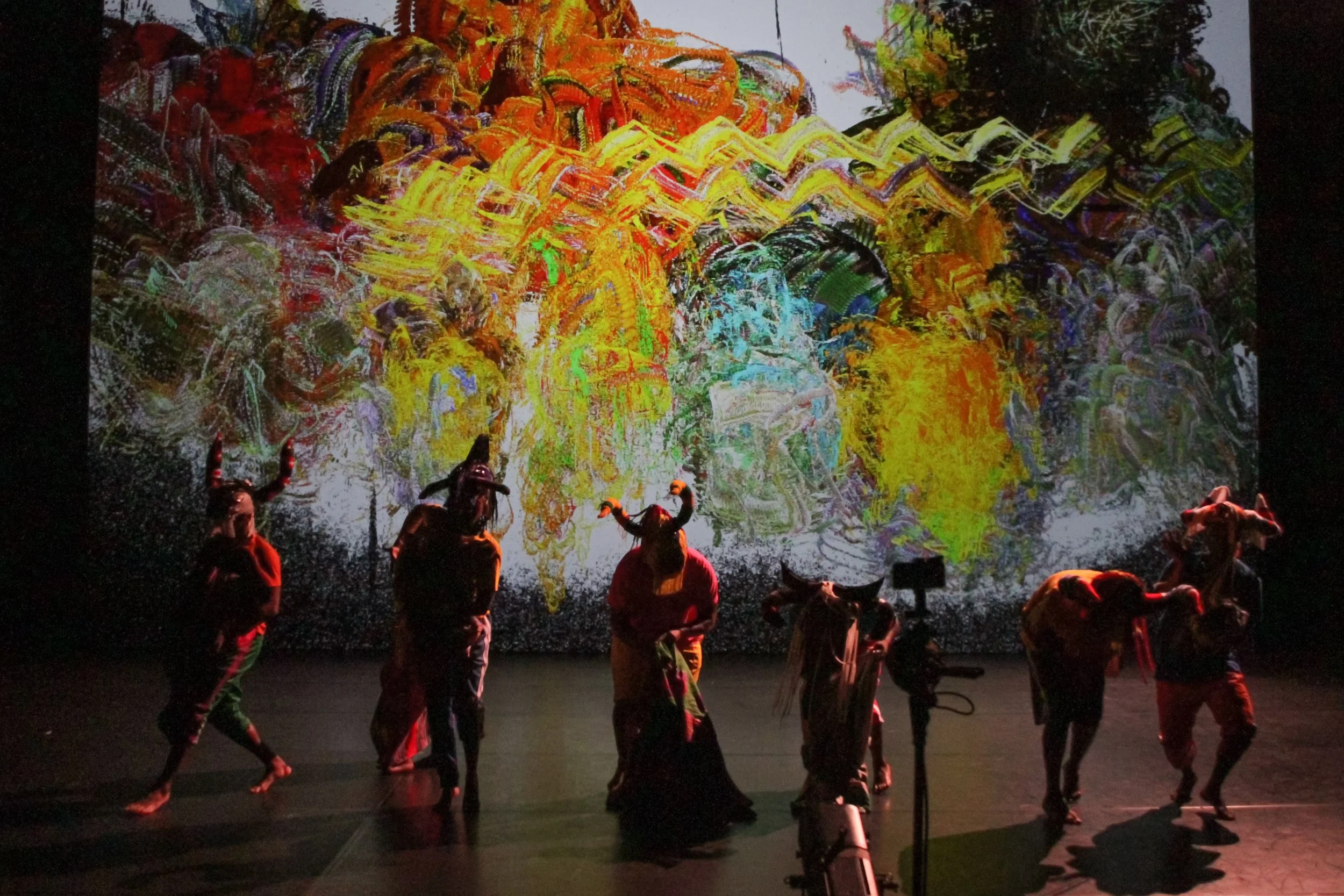








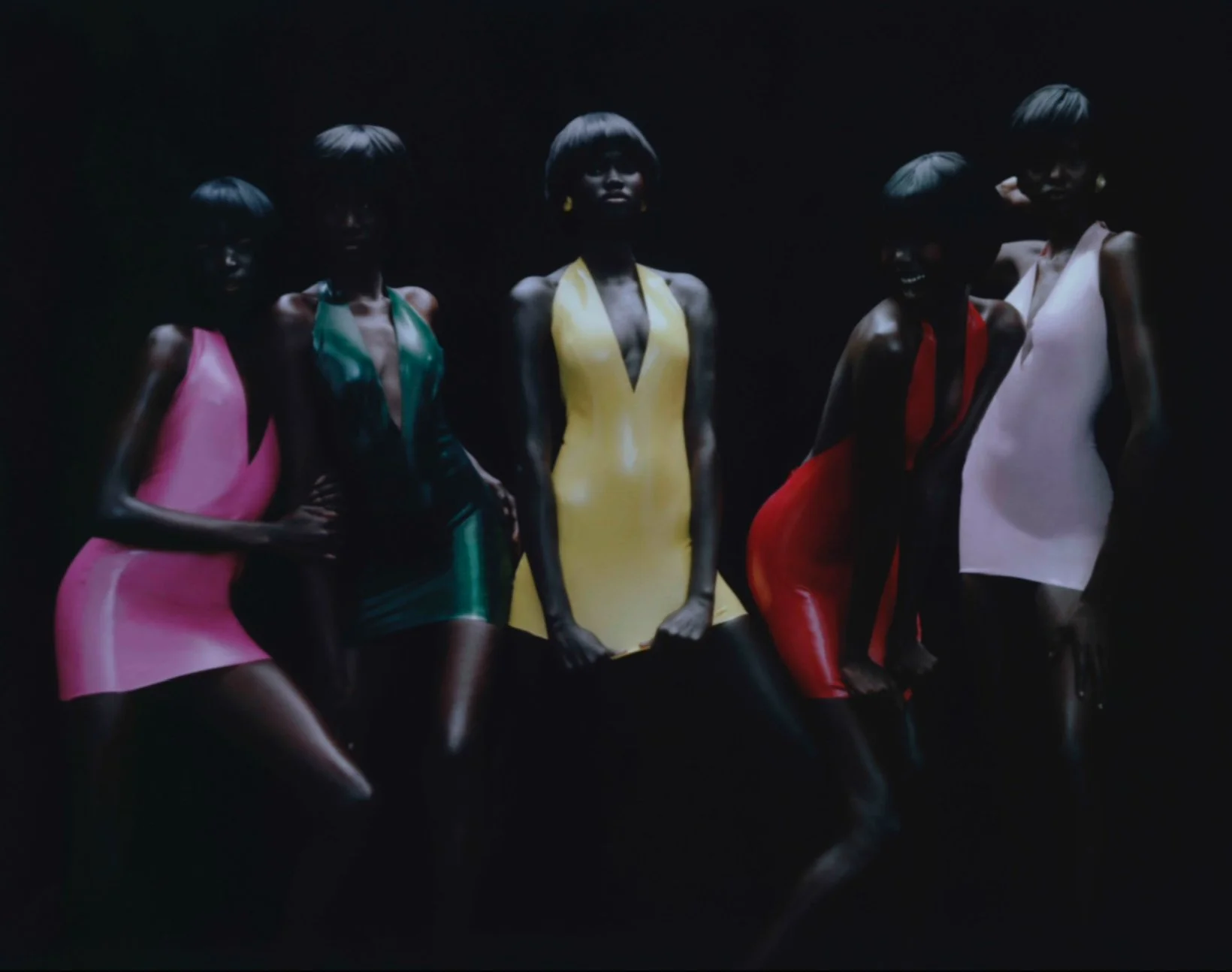

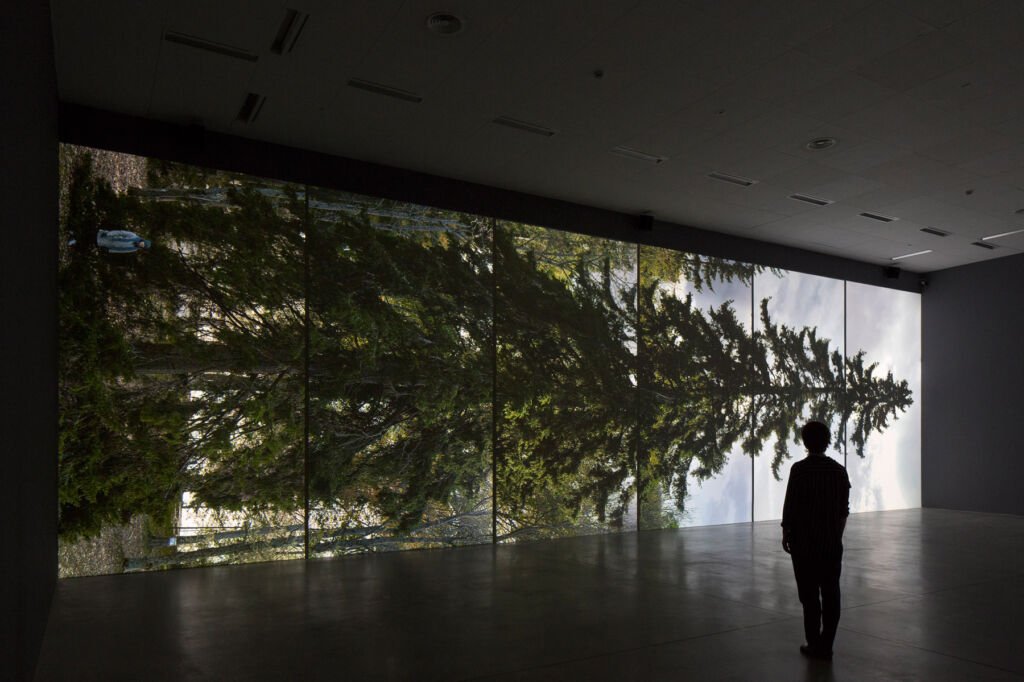





















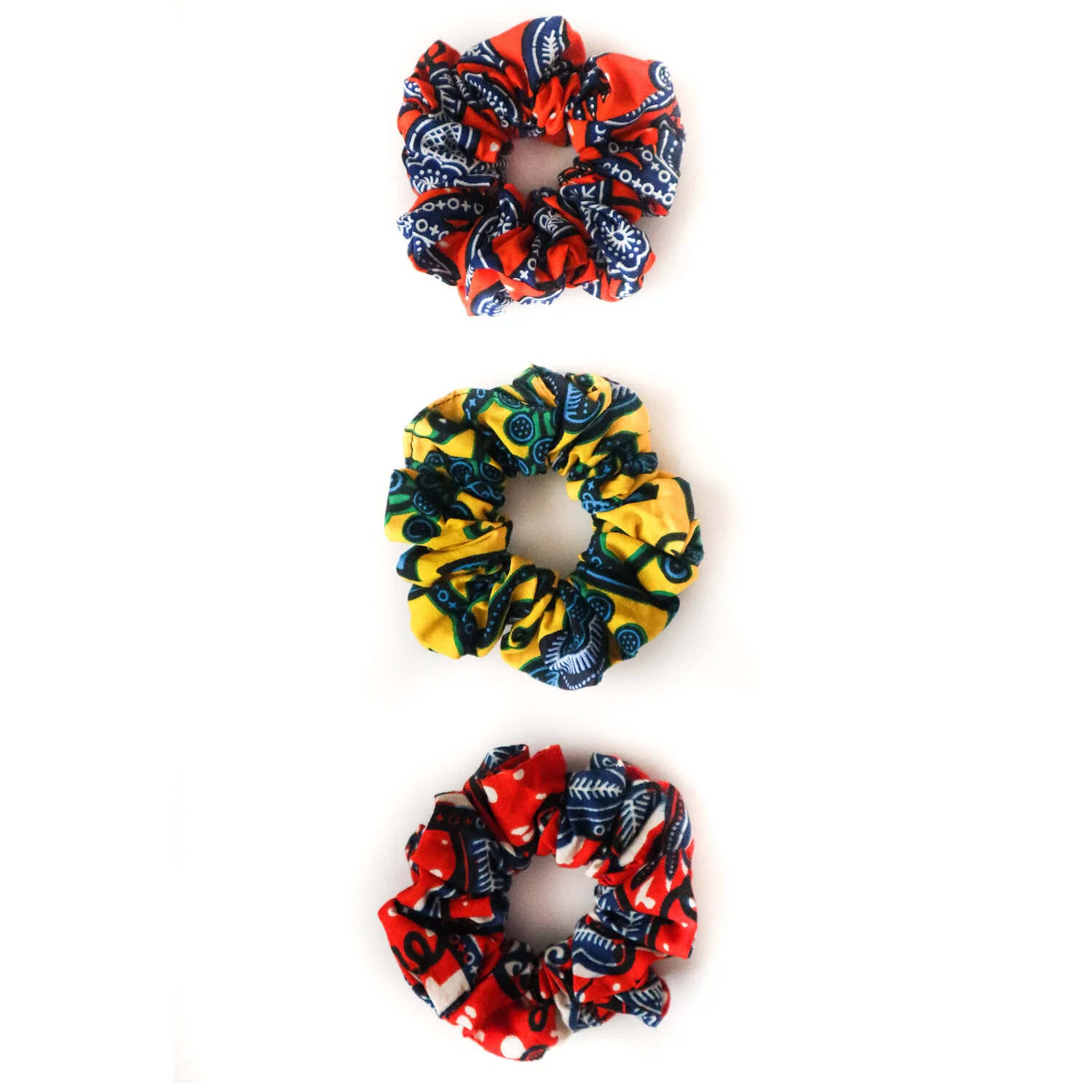



The Cinnamon Club had completely flown under the radar for me. It is in a pocket of London I rarely visit, and even if I did, the building’s exterior gives little indication of what’s inside. But now that I’ve discovered it, I already have plans to return with my husband - and in my mind, a list of friends I would recommend it to…